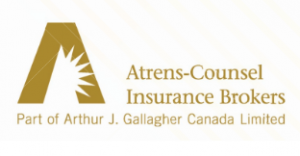Contending with property damage is an undesirable – yet unavoidable – reality of condominium management. For this reason, having the right property insurance goes a long way toward protecting your financials and giving all stakeholders greater peace of mind.
That being said, is your property insurance the proper fit for your building?
It’s a question that demands consideration, especially as property insurance is mandatory for all condominiums. For review, Ontario’s Condominium Act requires all standard registration condominium corporations to carry property insurance covering the common elements and the units, but not any betterments done to the units. Importantly, it clarifies the types of loss that a property needs to be insured against (aka “major perils”) and makes it clear that the insurable value must be the full replacement cost of the property. Additionally, the Act specifies that the insurance policy must be set up to protect three key parties, including the condominium corporation, each unit owner, and each unit’s mortgagee.
The mandatory requirement for property insurance for condos makes complete sense. Since unit owners collectively own the condominium, they want to protect their investment but do not want to bear any personal risk from an inadequate insurance limit or insurance companies that are not financially able to pay their claims during a catastrophic event. Meanwhile, mortgage providers and lenders want assurances that a condo corporation’s insurance coverage will restore the livability and sellability of the unit by repairing damage to both common elements and the basic unit. Similarly, financial institutions that provide mortgages on condo units will often be concerned that the policy is insured to full replacement cost value at all times and insured with financially stable, A-rated insurance companies. Savvy owners will want to ensure this as well, as the intent of the insurance is to transfer risk to an insurance company.
So, what should a condo board look for to know if their property insurance is adequate? From a high level, you want to ensure your coverage program is:
● Entrusted with stable and financially sound insurers;
● has a proper replacement cost limit of insurance;
● carries reasonable deductibles (as required by the Condo Act), and
● does not contain any co-insurance penalties.
There are additional points and tips to consider when assessing if your property insurance is the right fit. They include:
THE AM BEST GUIDE: When brokerages evaluate the financial stability of potential insurers, they will commonly consult the AM Best Guide. This is a reputable and independent rating agency that assesses the financial strength and stability of insurance companies. An “A” rating indicates that the company has a strong ability to meet its financial obligations, including paying out claims. This verifies that the insurer has sufficient funds to cover potential losses and provides peace of mind to policyholders. Many large corporations and financial institutions require a minimum “A” rating for their insurers.
REPLACEMENT COST APPRAISALS: To ensure your corporation carries an appropriate limit of property insurance, you should secure a replacement cost appraisal regularly. This report should be completed by an accredited independent third-party appraiser that carries an ASA or AACI designation. This will provide your board with assurances that your corporation is insuring its full replacement cost value and is in compliance with the Condo Act. Your declaration may specify how often to secure an accredited appraisal; but when in doubt, most condos observe the rule of thumb of every three to five years.
REASONABLE DEDUCTIBLES: The Condominium Act specifies that a condo corporation’s property insurance may carry a deductible but that the deductible must be reasonable. The term “reasonable” is used often in the Act, and it essentially means that the deductible is appropriate (and not in excess) based on the details of your particular condominium.
In our experience, many condos carry a water damage deductible of $25,000 or $50,000 as they feel that it is a good “managing deductible” for the corporation. In essence, it allows the condo to charge back up to that amount to the responsible unit for the nuisance unit-to-unit losses but still allows the corporation to access its insurance coverage at a reasonable deductible level.
WHAT IS COINSURANCE? Coinsurance is a penalty designed by insurers to penalize an insured (and make them a co-insurer on the loss) when an insureds property insurance limit is below the full replacement cost. As a basic example, if you have a clause in your policy, and only insure to a limit that is 50% of the replacement cost value of your property, the insurer will only pay roughly 50% of any loss your corporation incurs. This makes the condominium, and ultimately the unit owner, a co-insurer in the loss.
Be cautious of workarounds that require a board member or property manager to sign off on the insurable property value. These forms create significant exposure to boards and property managers and if requested should only ever be signed by an accredited independent appraiser. The most optimal option is to have your insurer remove any coinsurance penalties and provide a true no-coinsurance policy which offers maximum protection.
Between floods, fires, windstorms, and owner accidents, property damage is a near inevitability in a condominium. But when repairs or restorations are needed, there is value
in being equipped with a properly-tailored property insurance policy that will insulate the condominium corporation from financial burdens and let everyone rest easier.
Tom Gallinger is Senior Vice President of Atrens-Counsel Insurance Brokers (www.atrens-counsel.com).






